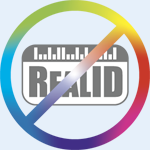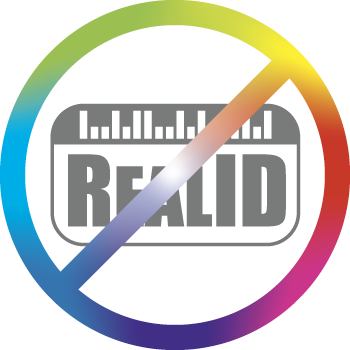The Real ID Act is viewed as one of the biggest problems in the transgender community in the US. Documentation is increasingly hard to get, especially for certain kinds of people (low-income, elderly, transgender, immigrant); and you need it for more and more things: starting a bank account, buying cigarettes … gender is recorded on the driver’s license; the fact of a name change is recorded on the 2d barcode – Mark to Mara, for me. Not sure about the gender change, but this is certainly in the database . Every time you go to a bar, you’re outed; in an airport. Maybe not such a big issue in a big city; what about in a small town – or where you know the TSA agent’s family?Russell Roundpoint (Chief Administrative Officer, Mohawk Council of Akwasasne) talked about the difficult situation of the Akwasasne community, which spans five jurisdictional districts (Canada, the US, Quebec, Ontario, and New York) -- and the extra challenges for people like his wife, who is a US citizen despite never having lived here, but does not fall under any of the standard categories of exceptions, and so has a hard time getting a passport. At yesterday's town hall meeting, a gentleman from the Arizona DMV had highlighted their experiences with the rural Native American population, and strongly cautioned DHS that the current regulations did not take this into account; I found myself wondering whether the Akwasasne situation had been considered.
Journalist Dave Jamieson talked about surveillance cameras in Washington DC (his Washington City Paper story Speaker of the House is a great read). While not specifically ID-related, the experience about how cameras and speakers so that the camera watchers can give orders are increasingly being installed in low income housing complexes is a good reminder that the burden of surveillance technologies (and that's what Real ID is) tends to fall very heavily on lower-income people or others who are marginalized -- the same point Mara brought up.
Lots of great stuff in the panel; see my detailed notes here.
jon


2 comments:
hi this is ram:The Real ID Act is viewed as one of the biggest problems in the transgender community in the US. Documentation is increasingly hard to get, especially for certain kinds of people (low-income, elderly, transgender, immigrant); and you need it for more and more things: starting a bank account, buying cigarettes … gender is recorded on the driver’s license; the fact of a name change is recorded on the 2d barcode – Mark to Mara, for me. Not sure about the gender change, but this is certainly in the database . Every time you go to a bar, you’re outed; in an airport. Maybe not such a big issue in a big city; what about in a small town – or where you know the TSA agent’s family?
ram,
dating
thing thing is increasing very fast but this must be stop.as soon as possible our hope is with god ,please god datingshow some mercy on us
Post a Comment